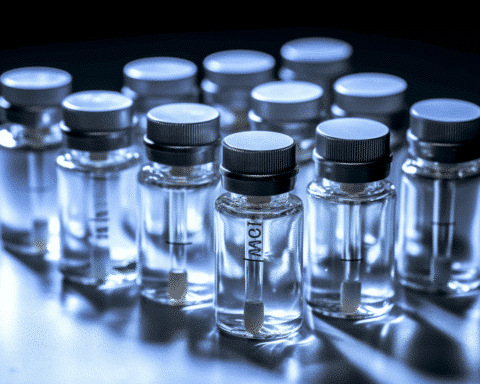The biotech and pharmaceutical sectors have been closely watching the growth of a promising class of cancer drugs known as antibody-drug conjugates (ADCs). In 2023, this market became a beacon of hope and development, as highlighted during the JPMorgan Healthcare Conference in San Francisco. ADCs offer a more targeted approach to cancer treatment compared to traditional chemotherapy, promising to deliver therapies directly to cancer cells while sparing healthy ones. This article delves into the recent advancements in ADC technology, the surge in corporate interest, and the potential impact on cancer treatment.
In 2023, ADCs emerged as a red-hot market, with Johnson & Johnson acquiring ADC-developer Ambrx Biopharma for $2 billion, bolstering its ADC pipeline. Andy Hsieh of William Blair & Company remarked on CNBC, “It’s kind of like FOMO, right? Everyone wants to gain exposure to [ADCs] and make it a cornerstone of their entire corporate strategy.” This sentiment captures the burgeoning interest in ADCs, driven by their potential for more extended market exclusivity and technological advancements.
Notably, companies like Pfizer and Merck, having closed numerous ADC-related deals, look at these drugs as key growth drivers. The market for ADCs, estimated at around $9.7 billion in 2023, is projected to reach $31 billion by 2028 within the $375 billion worldwide cancer market. This growth is fueled by increased confidence in ADC technology, the rise of Asian drugmakers in the field, and the potential for substantial profits.
Daina Graybosch of Leerink Partners pointed to AstraZeneca and Daiichi Sankyo’s Enhertu as a benchmark in ADC development, highlighting its broader treatment scope. However, challenges remain, such as resistance development in cancer tumours and the failure of some ADCs, like Sanofi’s experimental ADC, in clinical trials.
Merck and Pfizer are heavily investing in ADCs, with Merck expecting $20 billion in new cancer drug sales by the early to mid-2030s and Pfizer acquiring ADC-developer Seagen for $34 billion. Merck CEO Robert Davis stated, “We have a leading position now in antibody-drug conjugates, and we’ve done that through what I think is very smart deal-making.” Pfizer’s Albert Bourla echoed this optimism, seeing ADCs as pivotal in oncology.
The focus on ADCs in the biotech and pharma industries marks a significant shift towards more targeted, effective cancer treatments. With substantial investments and strategic acquisitions, companies are positioning themselves at the forefront of what could be a new era in cancer therapy. As ADC technology evolves and more treatments gain approval, the impact on patient care and industry dynamics could be transformative.




